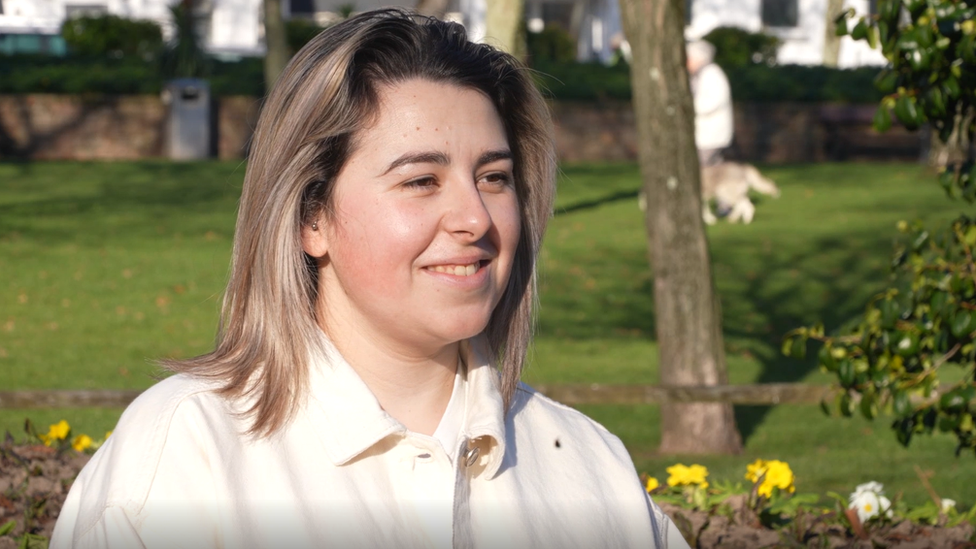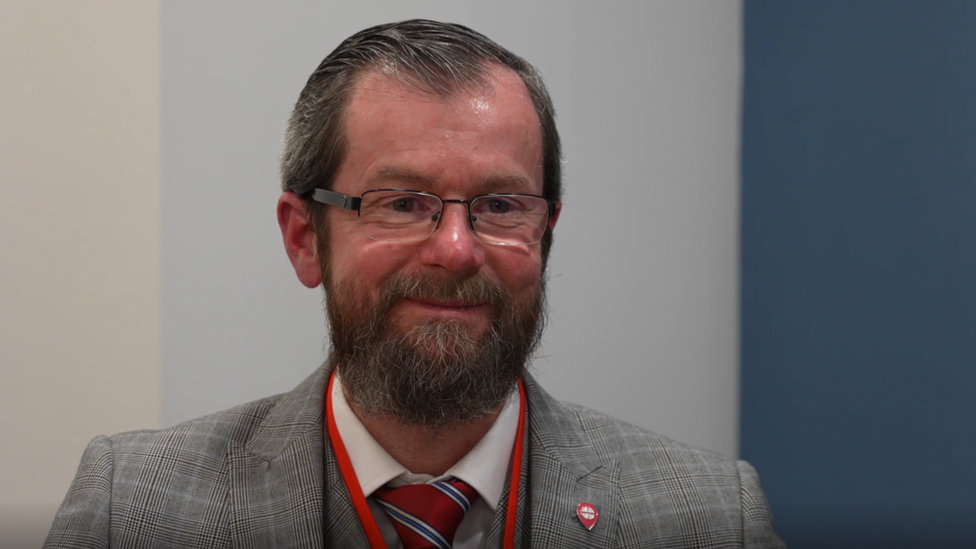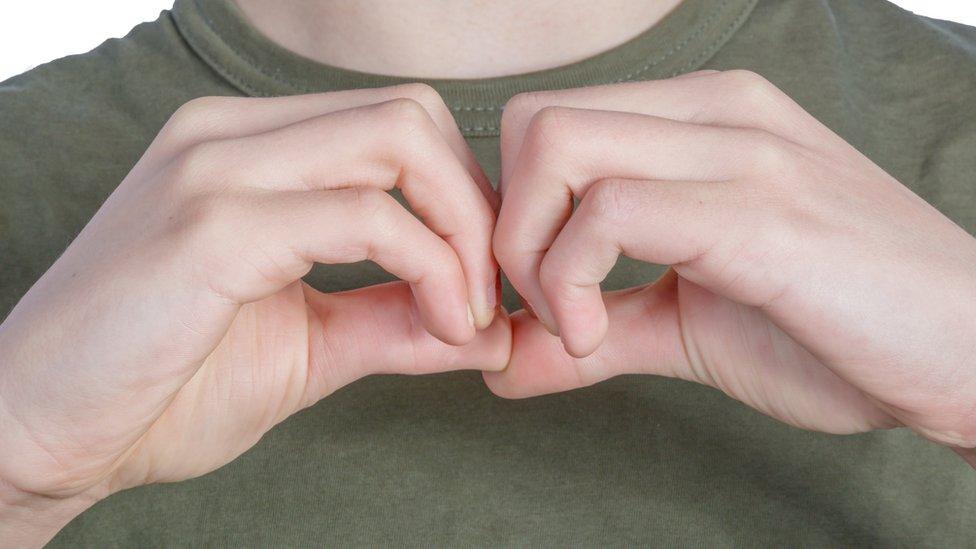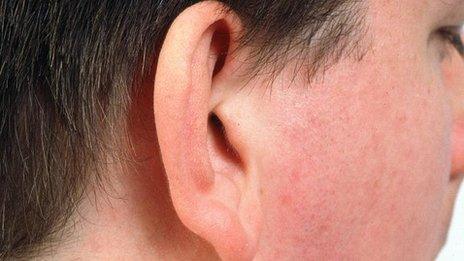States of Jersey to bring back support worker for deaf people
- Published

Ella-Louise Territt said funding from the government for the deaf and hard-of-hearing community had "disappeared" in the past five years
Jersey is to see a British Sign Language (BSL) support worker reinstated after the government cut funding for the role in 2018.
Deputy Malcolm Ferey said the post would return and potentially two part-time social workers and more equipment.
This would allow members of the deaf or hard-of-hearing community to "live more independent lives", he said.
The community had been "left behind" since funding was axed nearly five years ago, he added.
Deputy Ferey, Assistant Minister for Social Security and Assistant Minister for Health and Social Services, said he did not know why the role was cut in the first place.
Jersey born Ella-Louise Territt has been deaf since she was 18 months old, and has had to travel for hearing appointments since she was young.
'It doesn't work'
She said the support worker had attended medical appointments with her, including flying to London.
"There's literally no sign language interpreter in Jersey for hospital or doctors, dentists; pretty much anything for medical terms or bank or tax," she said.
"All government do is give us an iPad with Facetime with someone from the UK, but it doesn't work - we need a professional interpreter."
Miss Territt said since the removal of the role, she had volunteered to interpret at appointments for other deaf people.
"I want to help them because I've been through what they've been through and I don't want them to struggle," she said.
The support worker was asked to leave her position in 2018, and since then Jersey's deaf community has been struggling without adequate and consistent support.
Gabriele Schiessl from charity Earsay said there had not been adequate and consistent support since funding was axed.
"After various consultations the government has realised that support is needed and is now looking into finding the right person for Jersey's deaf and hearing-impaired community," she said.
The Royal National Institute for Deaf People (RNID) is a UK charity that campaigns for deaf and hard-of-hearing people to have equal access to spaces, services, health care and job opportunities.
In the UK, all NHS care and or publicly-funded adult social care services are required to follow the Accessible Information Standard law, external, introduced in 2016.
RNID policy lead Ayla Ozmen said the island could introduce legal requirements for all health and social care providers to "meet people's communication needs".
"It's not just about people losing their autonomy and having to get family and friends to talk about confidential, personal issues at a medical appointment, but... if you can't communicate in a medical appointment, then of course, it's a safety issue," she said.
Deputy Ferey said Jersey's legislation was better suited the needs of an islander with disabilities than the UK's as it was built on a social, rather than medical, model.

Deputy Malcolm Ferey said the reinstatement of the role alongside more support workers and technology would allow the community to "live more independent lives"
Mr Ferey said the government was also looking at assistive technology, including BSL translation via an app.
"I think in some ways the deaf community have been a little bit left behind and we're really keen to make sure that that stops now and that other members of the disability community have the support and structures in place that they need," he said.
"So yes, there will be more support coming in all different shapes."
Mr Ferey did not confirm how much would be set aside for the social workers, but the roles would return "within the next weeks and months".

Follow BBC Jersey on Twitter, external and Facebook, external. Send your story ideas to channel.islands@bbc.co.uk, external.
Related topics
- Published17 June 2022

- Published8 February 2012
